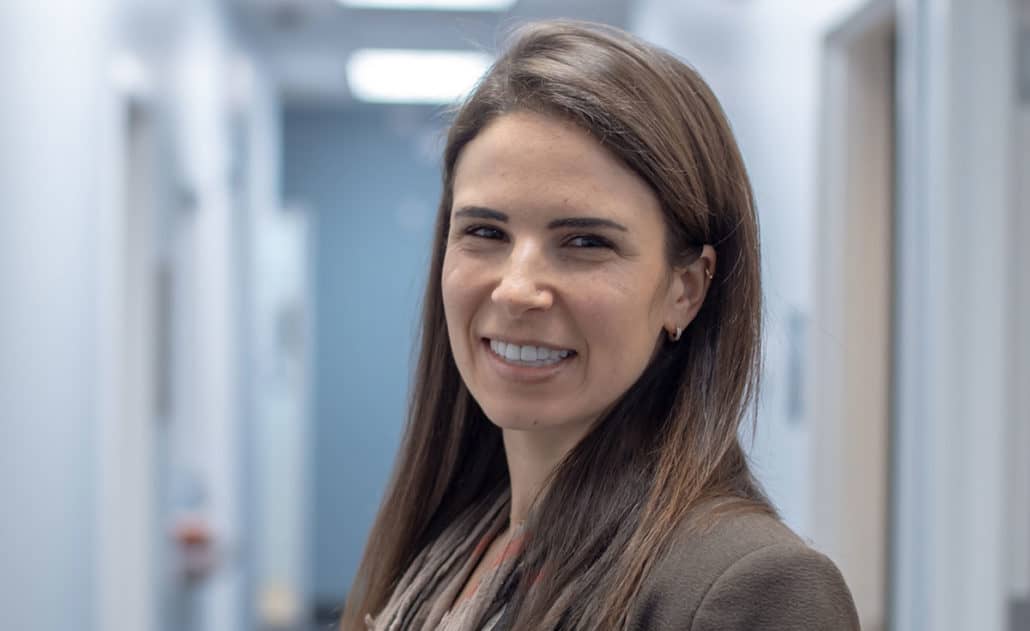
Voice Disorders
A wide variety of disorders can lead to vocal difficulty, a raspy or unstable voice, and hoarseness. If you have been experiencing any of these issues for more than two weeks, it is important to schedule an appointment with an ear, nose, and throat doctor or speech pathologist to get to the bottom of the problem. The multidisciplinary team at the Penn Medicine Becker ENT & Allergy Center can diagnose voice disorders using laryngoscopy and/or video stroboscopy, a minimally-invasive test that uses a tiny camera to look at the back of the throat and deeper nasal structures and create a personalized treatment plan to address any underlying issues that come up.
What Are the Symptoms of a Voice Disorder?
An individual experiencing a voice disorder may have a voice quality with one or more of the following features:
- Rough, raspy, or husky (hoarse)
- Strained, choppy, with breaks
- Tremulous/unstable
- Weak, breathy, or whispery
- Too high or too low in pitch
- Significantly altered pitch from what is their norm
Other symptoms may include:
- The inability to project/yell
- Tension or pain in your throat/neck when you speak
- Feeling that your throat/larynx gets tired after use
- Feeling of a “lump” in the throat with speaking or swallowing (or at rest)
- Pain or discomfort on the outside of the throat or neck by a gentle touch
- Loss of singing ability
- Burning in the throat with or without use
- Feeling short of breath while speaking/running out of air while talking

These are just some of the symptoms of a voice disorder. If you have been experiencing one or more of the above symptoms for more than 2 weeks, it is recommended that you make an appointment for an evaluation with our New Jersey and Philadelphia ENT doctors.
How Is a Voice Disorder Diagnosed?

If you have been experiencing one or more of the above symptoms that have been ongoing for 2 or more weeks, you should see a specialist for a thorough voice evaluation. A specialist may include an Otolaryngologist (Ear, Nose, and Throat doctor) or a speech-language Pathologist who specializes in Voice Disorders (often also called a Voice Pathologist). The specialist will ask about your symptoms and other medical history and may examine your vocal folds and larynx using one or more of the following tests:
Videostroboscopy
The test utilizes an endoscope to visualize the larynx. There are two types of endoscopes: flexible endoscope and rigid endoscope.
Flexible Endoscope
A flexible endoscope is a medical device used to visualize the larynx by inserting a small camera through the nose and positioning it at the back of the throat. It does not hurt and only takes a few minutes to perform the test. Your examiner will give you some numbing medication for maximum comfort.
Rigid Endoscope
A rigid endoscope is a small camera that is used to examine the larynx by being inserted into the mouth and peering over the back of the tongue. It does not go down your throat and also does not hurt. Both endoscopes use light sources called strobe light that allows the examiner to view the vocal folds vibrating in slow motion. This strobe light is very important for proper diagnosis, and you should ensure your examiner is using this type of test.
Imaging tests
Medical imaging techniques such as X-rays, CT scans, MRIs, and EMGs can detect growths, tissue abnormalities, or nerve conditions in the throat. If your examiner/physician feels this test is necessary for your voice complaint, he/she may send you for one in addition to the video stroboscopic examination.
Schedule your consultation
How Is a Voice Disorder Treated?
For a voice disorder, treatments depend on what the root cause is. Treatment may include:
Lifestyle changes
Some lifestyle changes may help reduce or stop symptoms. These can include not yelling or speaking as loudly and resting your voice regularly if you speak or sing excessively. Many voice disorders are caused by misuse/overuse of the voice, and these lifestyle changes can eliminate these if caught early enough.
Voice therapy (also called Speech Therapy)
Collaborating with a speech-language pathologist who specializes in voice can be beneficial for individuals with voice disorders. Voice therapy is essentially like physical therapy for your vocal cord muscles. Therapy will include some sort of combination of physical exercises as well as instruction to change maladaptive speaking (or singing) patterns if applicable.
Medications
Some voice disorders, depending on the etiology, may be improved with medication. For example, antacid medication may be used for laryngopharyngeal reflux; or nasal sprays/allergy medication for allergies affecting your voice.
Injections
For some voice disorders, botulinum toxin injections are appropriate and in some cases, fat or other fillers can be injected into the vocal folds. These are very specific treatments for specific voice disorders. It is important to have a thorough evaluation and proper diagnosis before embarking on this treatment.
Surgery
Vocal fold surgery is a potential treatment option for restoring laryngeal function in cases such as vocal fold paralysis, large vocal fold polyps, or vocal fold cysts. For some procedures, a patient can remain comfortably awake in the office instead of under general anesthesia in the operating room. If growths are cancerous, other treatments like radiation therapy may be necessary.
Voice Disorders We Evaluate at Penn Medicine Becker ENT & Allergy
Structural Changes of the Vocal Folds
Vocal Fold Bowing/Presbylarynges
Cysts
Granuloma/Contact Ulcer
Laryngeal Papillomatosis
Laryngitis: Acute and Chronic
Leukoplakia and Hyperkeratosis
Polyps
Reinke’s Edema
Scar and Sulcus Vocalis
Vascular Lesions: Vocal Fold Hemorrhage and Varices
Vocal Fold Cancer
Vocal Fold Nodules
Neurogenic Voice Disorders
Organic (Essential) Vocal Tremor
Spasmodic Dysphonia
Vocal Fold Paralysis/Paresis
Parkinson’s Disease-Related Dysphonia
Other Voice Disorders
Muscle Tension Dysphonia
Puberphonia
Upper Airway Disorders

Pick one of our convenient locations
for your Voice Disorders Treatment
